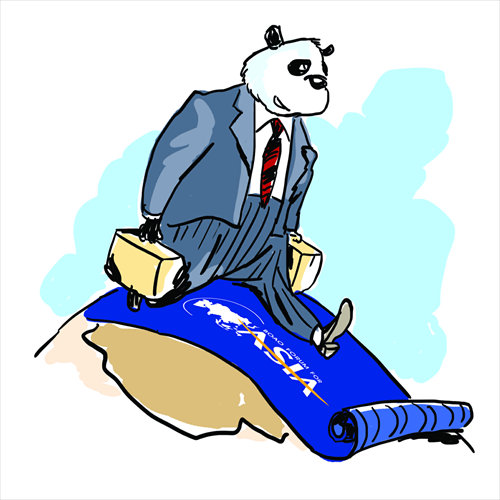Boao Forum’s informality aids diplomacy

The Boao Forum for Asia (BFA) has stepped into its second decade of development. Although it was designed mainly as a forum for discussion on economic issues, the past decade has witnessed its great contribution to the development of China's full-fledged diplomacy. With all the conferences and events held during the past years, it has given China's multi-level diplomacy more momentum and channels.
As a non-governmental organization, the BFA provides an informal platform for meetings and exchanges of views among senior leaders of governments from different Asian countries. Actually the high-level participants from governments around Asia have turned the BFA into a kind of hybrid forum.
On the one hand, it still functions mainly as an unofficial channel. Yet on the other hand, the so-called informal talks among senior governmental officials can sometimes really help in solving certain problems, in particular when bilateral relations are strained.
Its flexible organizational form provides opportunity to deal with certain sensitive diplomatic issues, while excluding to some extent the implications that official acts could cause.
Another case is the handling of cross-Straits relations via this forum. The participants from Taiwan not only fulfill Taiwan's needs to catch up with the pace of Asian regional integration, but also greatly enhance high-level communication and dialogue across the Taiwan Straits.
Therefore, the BFA is not only a good place for talking about business, but also for conducting diplomacy.
In the meantime, the Asia-centered approach adopted by the BFA distinguishes it from other comparable forums. Since its foundation, the BFA has been focusing on the challenges and opportunities for Asian regional integration. It provides a different perspective by considering the Asian views and interests first. In this way, it is gradually cultivating the spirit of "Asia for Asians" while adhering firmly to the open regionalism long heralded by Asian countries.
The founding of the BFA itself has demonstrated inclusiveness and diversity, with eminent figures from various Asian countries playing an active role in its founding and subsequent operation. This has matched Asian realities of diversity and differences.
The Asia-centered approach also creates space for enhancing China's relations with Asian countries through this forum. China's policy of respect for the diversity in Asian countries and stressing of mutual comfort in bilateral and multilateral relations with other Asian countries are demonstrated vividly in the activities of BFA. With the new Chinese leadership coming to center stage, this feature will be enhanced and improved.
The BFA helps China's diplomacy in many specific areas. It has enriched the forms and contents of China's diplomacy, mainly economically and publicly.
For economic diplomacy, with the clear aim of enhancing Asian regional integration in mind, the discussion going on among the governmental officials and business leaders has had real meaning for the pushing forward of various Asian free trade agreements (FTAs), like ASEAN-China FTA, China-Japan-South Korea FTA, and finally the Regional Comprehensive Economic Partnership.
As for public diplomacy, the participants of the BFA are a varied bunch: officials, businessmen, academic scholars. Their concerns are also varied: economic growth, social welfare, and environmental protection. The mingling of all these peoples around the world with different views has actually helped deepen understanding and communication between Chinese people and those around the world.
China's President Xi Jinping will make a speech at the opening ceremony of the BFA annual conference 2013. I believe this again shows clearly the new Chinese leadership's promise to continue and strengthen such dialogue, which definitely means the BFA will continue to play an active role in promoting both China's economic growth and diplomatic interaction with Asian countries.
The author is a research fellow at the Institute for World Economy Studies, Shanghai Institutes for International Studies. opinion@globaltimes.com.cn